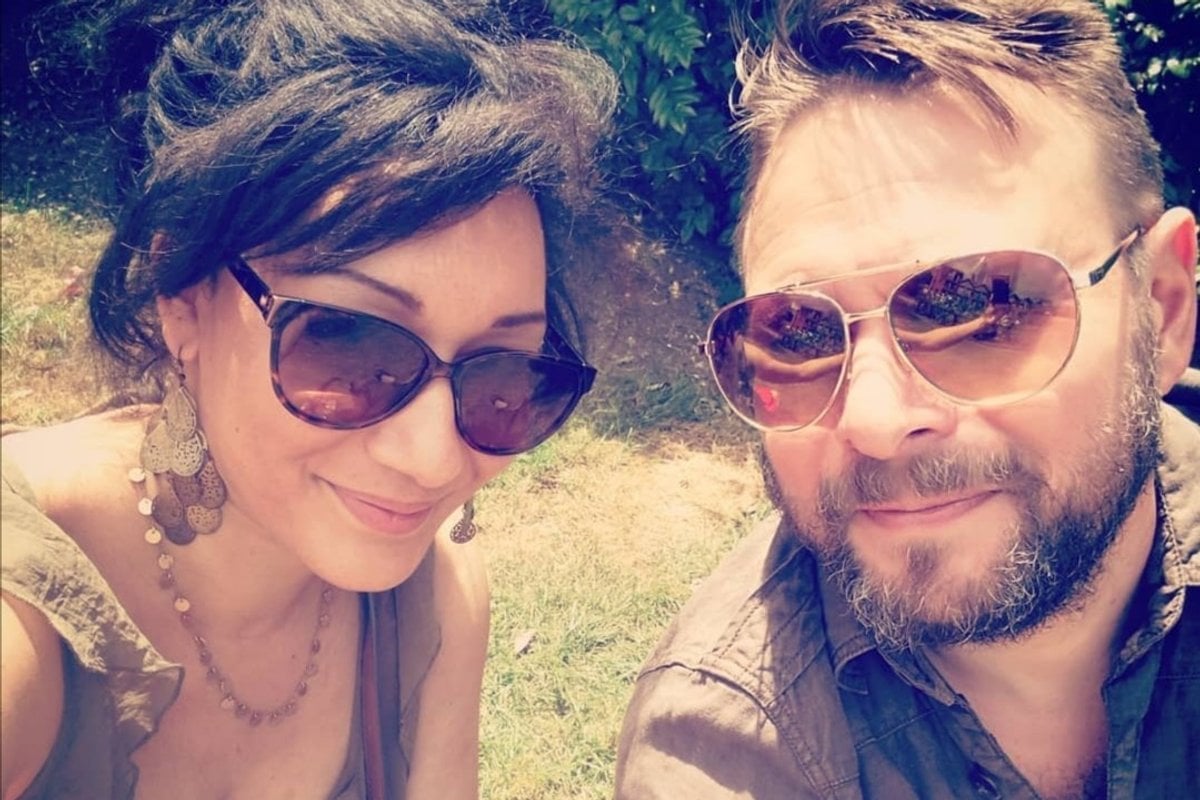
I met Matt, my husband to be, when I was 23, and at an easy, happy point in my life.
All the adolescent struggles with my brown ethnicity seemed a distant memory, since I’d started gravitating back to the multicultural melting pot of London, a place I had perpetually missed since relocating to a predominantly white area of Essex, at aged 10.
Those formative years of existing as the sole brown face wore heavily on my character.
Side note: Meet Mamamia's subscription service, MPlus. Post continues below.
Whether positive or negative, my skin was the first thing that everybody noticed, highlighted further by my all-white family - and it wasn’t long before skin became my every thought, too.
My standout differences were all-consuming, my teen years devoted to trying to fit in, conforming in the best ways I could to Western beauty standards; from the chalky paler than pale foundations I’d smother myself in, to straightening my hair so much, I suffered breakage and loss.
But on leaving school, I started to find my feet.


Top Comments